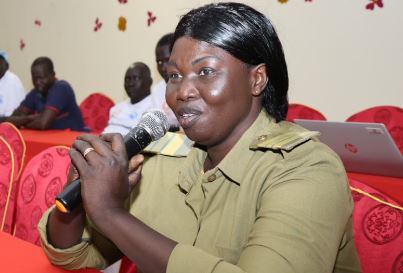A section of women in the Jonglei State capital, Bor, is defying negative traditional cultural norms to pursue careers despite social barriers.
Jessica Ajok, the head of a Bor-based childcare and women’s rights organization, is at the forefront of the movement advocating for greater access to education and career opportunities for women.
Ajok recalls the challenges she faced growing up, where early and forced marriages, along with limited access to education, prevented her and many other women from realizing their full potential.
“I encourage every family to send their girls to school so that they can compete in the job market,” she emphasized. “There should be no girl or boy left out, they all should go to school so that we can build the nation together.”
Another Bor resident, Salome Athieng Bol, believes in equal opportunities for men and women in the workforce. She argues that cultural norms have long hindered women’s ability to participate in the country’s growth.
“My message to men is that they should allow their women to compete in the job market and give them the freedom to pursue their passions,” she stated. “To women, even if you are educated, you should remain respectful and supportive to your husbands, as they are still the head of the family.”
For his part, Bol Deng Bol, the chairperson of the Jonglei Civil Society Network, pointed out the detrimental impact of societal expectations on women who have often been the primary breadwinners despite facing significant obstacles.
“In Jonglei and Lakes States, many women and girls are left behind in education, public participation, and leadership roles,” Deng explained. “The legal framework supports affirmative action, yet the literacy rate remains low. We need more awareness about equal rights for both boys and girls.”
Meanwhile, Elizabeth Ayen Kuer, the Executive Director of the Women Empowerment Program in South Sudan, shared that her organization is actively working to help women and girls achieve financial independence and break free from the limitations imposed by negative cultural norms.
“We empower women through leadership training and economic empowerment programs like tailoring, bread making, and hairdressing among others,” she said. “We also train young girls in schools after establishing six girls’ rights clubs across Bor County.”
However, not everyone in the community supports these efforts, with some men like Daniel Nyak Ngang arguing that traditional gender roles are crucial for maintaining harmony in relationships.
“When women become financially independent, they sometimes stop listening to their husbands and become rebellious, undermining the role of men in society,” he stated.
Another man in Bor, Daniel Kuany Ayuen, also expressed concerns about women’s financial independence, linking it to marital instability.
“Marriage is expensive, and allowing women to work could lead to moral decay and disrupt the family structure,” he affirmed. “If my wife pursued a career, I wouldn’t support it.”
Human rights organizations continue to challenge these patriarchal views, arguing that they create systemic barriers for women, keeping them marginalized from leadership positions and negating equal opportunities in the job market.
As women in Bor fight for their rights and the opportunity to contribute to society, the debate over traditional gender roles and employment continues to unfold.




